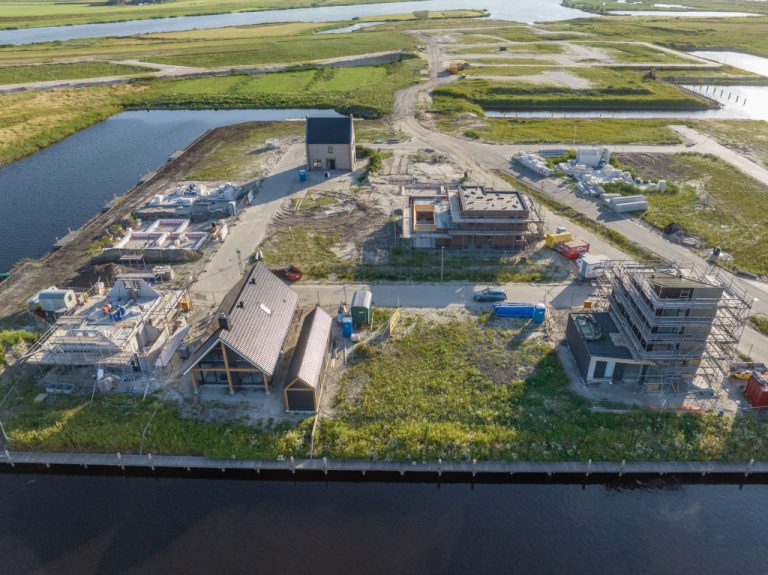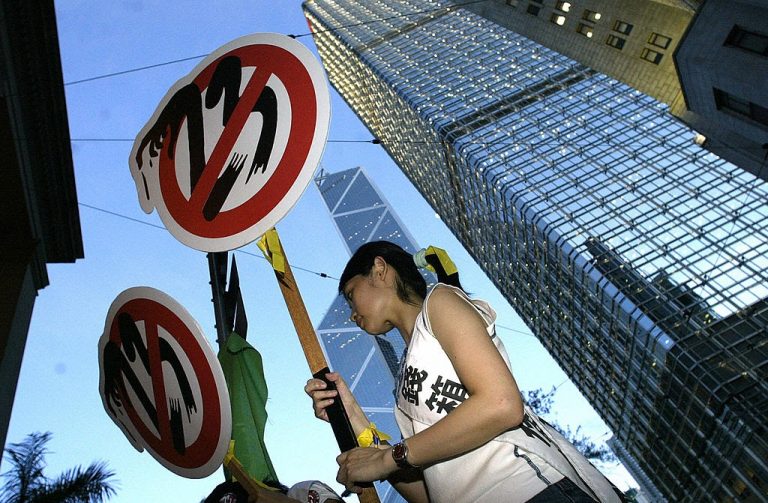The Dutch Supreme Court halted an offshore carbon capture project because it wasn’t tested for European nitrogen emission requirements. However, the decision created a legal precedent that thereby ground to a halt all major construction activities in the country.
The carbon capture project in question was called Porthos, which stands for Port of Rotterdam CO2 Transport Hub, and Offshore Storage, a huge joint venture involving oil industry giants Shell, BP, and Exxon, and some governmental players like the Gas Union, the Port of Rotterdam, and the Netherlands Energy Association (EBN).
The consort set out on a quixotic plan to capture CO2 (Carbon Capture and Storage, or CCS) out of thin air and store it in empty gas fields under the North Sea.
The developers claim they can reduce the amount of CO2 in the air above Holland (which is only 0.04 percent on average) by 2 percent by 2030 — although they didn’t provide specifics on which data these assumptions were based.
Construction blocked
But now, it turns out, the billions of dollars invested have tripped over EU regulations, not over CO2 reduction rules, but because of the expected nitrogen output of the undertaking.
Success
You are now signed up for our newsletter
Success
Check your email to complete sign up
It’s not that Porthos is expected to have an adverse impact on the environment in terms of nitrogen emission balance, which is expected to be negative; it’s just that the consortium didn’t count on EU regulations which dictate that construction activities may not have any direct dire impact on the adjacent environment being interpreted to apply to their project.
“This is quite a dramatic ruling by the Dutch supreme court which could not only delay this specific #CCS project, but also other projects in the country #OOTT,” commented Ron Bousso, Chief Oil and Gas Corporate Correspondent for Reuters on Twitter.
Not only is the court ruling a heavy blow for Holland’s sustainable energy businesses, but is a likely coup de grâce for the entire housing construction industry, which finds it nearly impossible to meet EU nitrogen emission limits.
“It now seems that this ruling will delay projects necessary for the energy transition by about six months to two years,” Climate Minister Rob Jetten commented, according to Reuters. “That’s a bitter pill because many sustainable undertakings – after they have been built – actually reduce nitrogen emissions.”
READ MORE ON CARBON CAPTURE, NITROGEN EMISSIONS, AND FAULTY DUTCH POLICIES
- Saskatchewan Warns Trudeau Admin Federal Nitrogen Testers May Be Arrested for Trespassing
- Dutch MP Argues Nitrogen Cuts Part of Globalist Agenda to Disown Farmers and House Immigrants
- Facility Designed to Fight Global Warming Breaks Down Due to Freezing Temperatures
- Dutch Bank CEO Proposes Turning Carbon Usage Into a Tokenized Commodity
The housing sector is projected to come to a screeching halt now that all construction projects must be tested again to meet Europe’s nitrogen emission benchmarks, which are likely to fail because most building activities produce nitrogen — even if the result is a negative score.
The Dutch Builders Guild dubbed the ruling “dramatic,” stating, “All projects that have not yet been licensed will have to reapply for an individual environmental permit. This will cause enormous delays, with harmful consequences for house seekers, the energy transition, and the Dutch economy,” Reuters added.
Political pushback
“The #housing crisis is getting worse. The absurd #nitrogen rules are causing a #building freeze. The fact that the Council of State is now taking the exemption off the table is completely due to this cabinet being bound by European regulations,” right-wing opposition MP Wybren van Haga said on Twitter.
Many commentators feel the situation marks another time the Dutch government has created a humanitarian crisis, including when it cut intensive care bed levels, which were stable since 2010, on the eve of the Coronavirus Disease 2019 (COVID-19) crisis.
Another sore spot with many in the country centers around the boycott of all Russian gas imports (amounting to 20 percent of the national supplies) and closure of the largest natural gas resources field found to date.
A similar situation happened with refining capacity of the Dutch petrochemical industry, which has been constantly downgraded and risks leading to massive fuel shortages in the near future.
Meanwhile, the country has widely opened its floodgates for immigrants, most notably Ukrainians, so much so that the government is forging plans to mandate homeowners and tenants to accommodate and feed them.

















